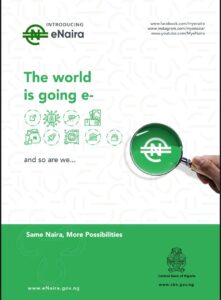The Federal Government has put up all the rail services accross the country for private sector concession.
Key among the services are the Lagos-Ibandan, the Abuja-Kaduna and the Itakpe-Warri standard guage rail services.
The Minister of Transportation, Mr. Muazu Jaji Sambo disclosed this in a presentation at the Nigerian International Economic Partnership Forum in New York.
He spoke on the topic financing Nigerian infrastructure.
At the forum, the minister explained the investment opportunities in Nigeria’s transportation sector to global Investors.
He spoke about investments opportunity in maritime sector especially the proposed deep seaports in Badagry, Lagos State Ibaka, Akwa Ibom State, and other planned seaports. He spoke about investments in the inland waterways which is waiting to be harnessed and the Nigerian railway sector.
In the rail sector the minister said the opportunities that exist for private sector investments in the rail subsector are limitless,.
Some of which he listed to include:
The unbundling of the Nigerian Railway Corporation which which will have a different regulator from operators. This he said it is essential for efficiency, effectiveness, enhanced productivity and the creation of more jobs and revenue flows.
Others include:
“Concessioning of the operation of the newly constructed standard rail lines, namely Abuja-Kaduna (187.5km), Warri – itakpe -Ajaokuta ( 326km) and Lagos – Ibadan ( 118km); the Development of inter-State and intra-state train Services (Mass transit and freight/parcel Services) in the state capitals and major commercial cities. Kaduna-Zaria, Kaduna-Kafanchan, Intra-State and Kaduna-Minna inter-state mass transit train services; Kano – Challawa and Kano – Nguru intra and inter-state mass transit train services and Lagos – Oshogbo inter-state mass transit train Services.”
According to the Minister, “the remodeling and redevelopment of major railway stations to incorporate modern commercial outlets and warehousing facilities at the following stations: Iddo and Ebutte-Metta in Lagos; Ilorin in Kwara State; Minna in Niger State; Kaduna in Kaduna State; Kano in Kano State; Port Harcourt in Rivers State; Aba and Umuahia in Abia State; Enugu in Enugu State; Makurdi in Benue State; Jos in Plateau State; Gombe in Gombe State and Maiduguri in Borno State” are also Investment opportunities.
He also added the “provision of the following ancillary facilities in major rail terminals and stations along the standard gauge corridor: Restaurants, E-ticketing offices, Hotels, VIP Lounges and Industrial Parks.”
On transportation infrastructure financing, he said: “The transport infrastructure can be funded through government or private sector financing.
Government funding options would include budget funding (Budgetary allocation, enhanced statutory allocation and viability gap funding) and off-budget financing (Special intervention funds, bonds, low-interest concessional loans, financing from aid and donor agencies etc).*
He said “Private Sector financing options would typically include pension funds, long-term commercial bonds, multilateral agencies, export credit finance, private equity, infrastructure funds, PPPs, etc.”
He noted that “Nigeria’s core infrastructure stock is estimated at 20% to 25% of GDP, for which the National Integrated Infrastructure Master Plan (NIIMP) estimates that about $35billion is required annually over the next five years to sustain a robust economic growth and USD3Trillion is needed over 30 years .”
Sambo noted that “Public Private Partnerships (PPPs) have proven a viable option to unleash unprecedented infrastructure growth. Public Private Partnerships (PPPs) create a balance between State Ownership and Privatization.”










